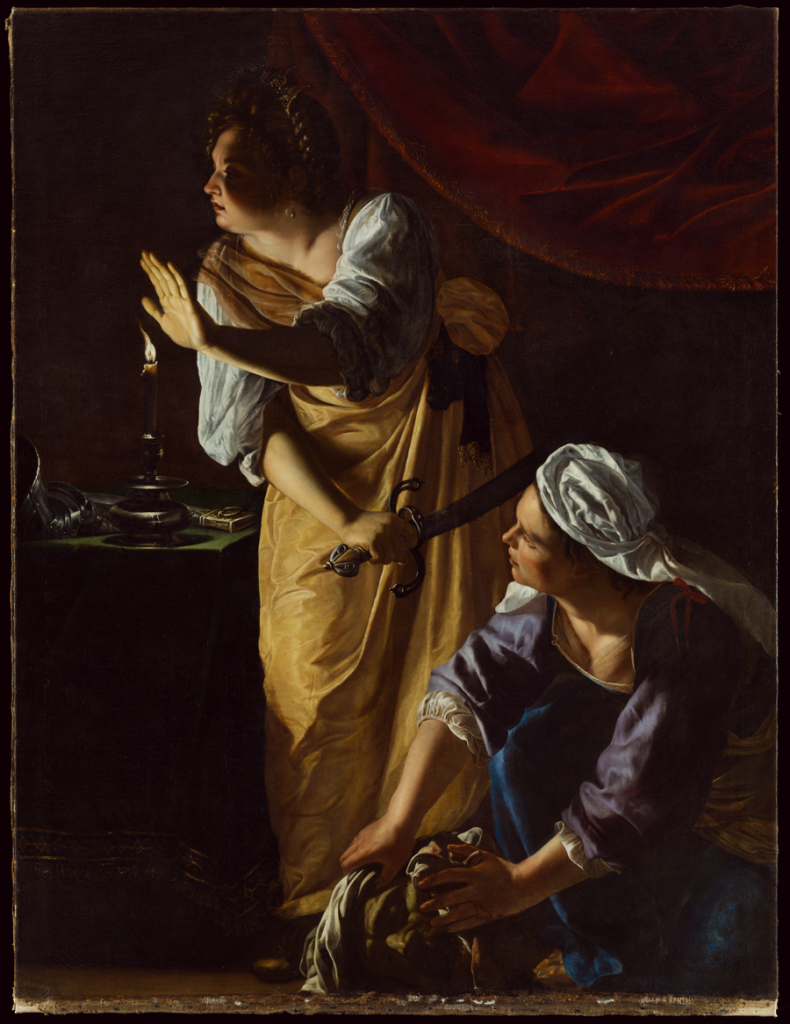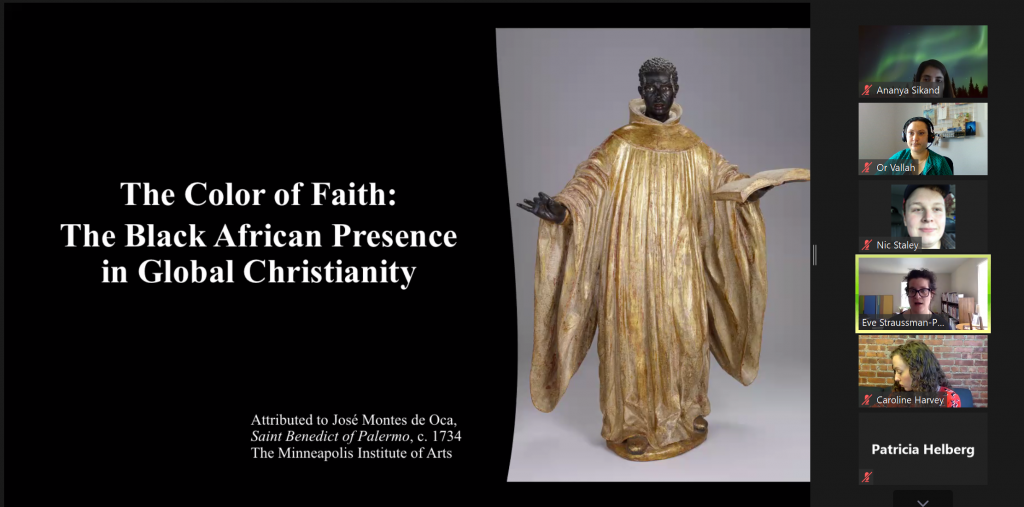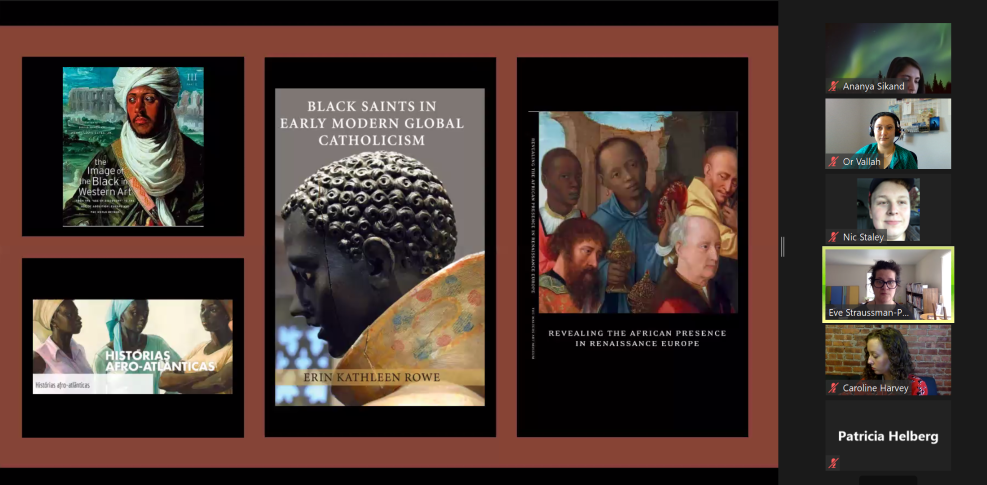Curator Dr. Straussman-Pflanzer speaks candidly on the responsibilities of Museums
By Caroline Harvey
As a part of a quarterly series, the Graduate Students of Art History reading group, Dismantling the Canon, recently hosted a wonderfully candid talk with Dr. Eve Straussman-Pflanzer, Curator and Head of Italian and Spanish Painting at the National Gallery of Art in D.C., entitled “Museums on a Mission?”. Dr. Straussman-Pflanzer spoke about equity within museum collections, exhibitions, and amongst museum professionals.
Holofernes, ca.1623–1625, oil on canvas, Gift of Mr. Leslie H. Green, Detroit Institute
of Art, 52.253
Dr. Straussman-Pflanzer is known for her work on Artemisia Gentileschi, who will be featured in her upcoming exhibition By Her Hand: Artemisia Gentileschi and Women Artists in Italy, 1500–1800 at the Detroit Institute of Art and the Wadsworth Atheneum Museum of Art. During her talk and following discussion, Dr. Straussman-Pflanzer discussed some of the ways in which Gentileschi’s biography and her experience with sexual assault have become a narrow lens through which her work is viewed. This has also resulted in the careers of many other women artists being similarly viewed through fixed gendered readings. This is a common occurrence in art history, in which artists of color, women, LGBTQ artists, etc., are seen as metonymies of their communities and forced to be cultural representatives rather than individual artists, which loses the intricacies and complexities of artistic production. What can scholars and curators do to avoid such limitations? One solution Dr. Straussman-Pflanzer gave was to use those restrictions to our advantage as advocates of marginalized artists. By featuring Gentileschi in By Her Hand, she will be able to harness Gentileschi’s popularity to reframe her narrative and shine a light on other women artists, which will thereby unpack the identity of the “woman artist” and subvert narrow definitions. Similarly, our own Professor Estelle Lingo has led graduate and undergraduate seminars on Gentileschi’s agency in her own biography and how scholarship’s treatment of her is reflected in the study of women artists. Professor Lingo also participated in this year’s panel: “Artemisia Gentileschi and the Ethics of Scholarship” at the Renaissance Society of America Annual Conference, which posed questions on how early modern scholarship can use the treatment of Gentileschi to reexamine their own historical methods.
Art historians are on a constant mission to create thought-provoking research and exhibitions, though we do not usually discuss the hurdles one must clear to complete such goals. The BLM movement opened the door for many museum employees to call out prejudice and toxic work environments, and the financial constraints of the pandemic also further exposed art museums’ dependence on wealthy donors and board members. Common questions in the art world and amongst the members of Dismantling the Canon are: how do museum’s invoke real change when they are beholden to capitalism and the 1%? Will we ever progress beyond having to cater to the needs and wants of rich, white, cisgendered male donors? Dr. Straussman-Pflanzer was extremely forthcoming about these issues and how her career has taught her that her role as a curator is as much about building productive relationships as it is about producing fruitful research and exhibitions. At multiple points in our discussion, she emphasized the importance of cultivating relationships with like-minded, progressive donors, even if they are not the richest patrons. By rethinking the curator’s job description, Dr. Straussman-Pflanzer presented progressive and optimistic approaches to our graduates as we enter an art world that is currently struggling to meet the demand for the ethical treatment of employees and confront their own complicity in the creation of the structure that continues to perpetuate inequitable professional standards.



